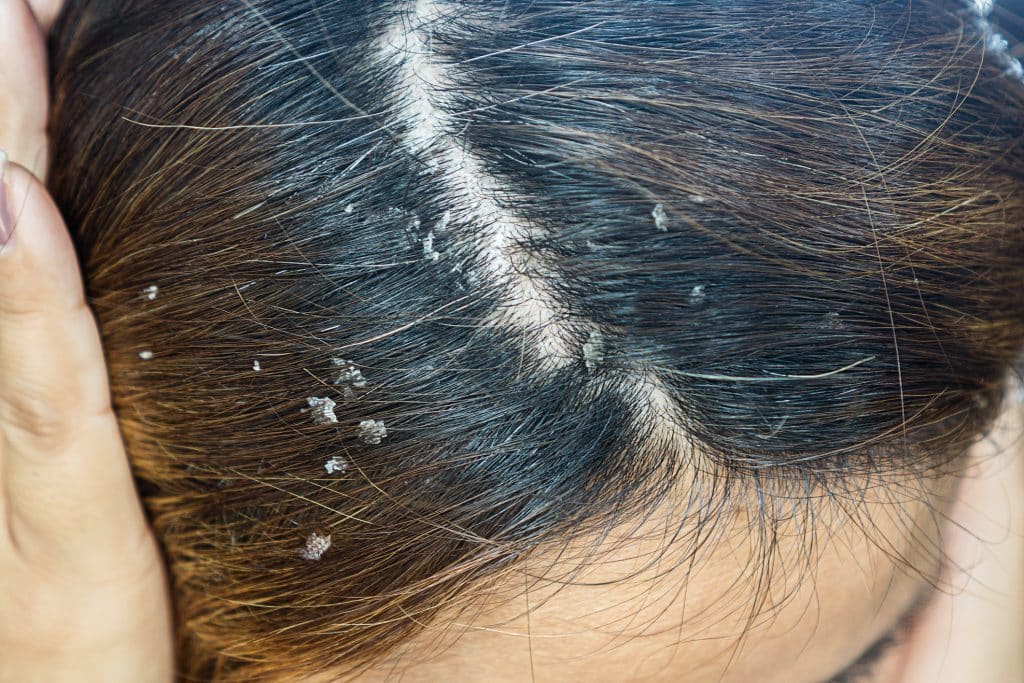Psoriasis vs. Dandruff: How to Tell the Difference
One of the most common questions we hear at Bragan Skincare is:
“Do I have dandruff or psoriasis?”
It’s a fair question, both conditions cause flaking, itching, and discomfort on the scalp. But while they might look similar, the underlying causes and best treatments are very different. Misdiagnosing your scalp problem can lead to months (or years) of frustration, especially if you’re using the wrong shampoo.
In this guide, we’ll help you clearly understand the differences between dandruff and scalp psoriasis, what symptoms to look for, and why the right treatment (including snail mucin shampoo) can make all the difference.
What Is Dandruff?
Dandruff is extremely common and usually harmless. It’s caused by one or a combination of factors:
- Yeast (Malassezia) overgrowth that feeds on scalp oils.
- Excess oil production (seborrheic dermatitis).
- Skin sensitivity to certain products or ingredients.
Key signs of dandruff:
- Flakes are white or yellowish, light, and often loose or greasy.
- Often comes with oily or itchy scalp.
- Flaking tends to worsen in cold, dry weather or with stress.
- Usually improves with anti-fungal or anti-dandruff shampoos.
In short: dandruff is more about oil imbalance and yeast growth than immune dysfunction.
What Is Scalp Psoriasis?
Scalp psoriasis is very different. It’s a chronic autoimmune condition, where the immune system speeds up skin cell turnover. Instead of shedding naturally, cells build up rapidly, forming thick, scaly patches.
Key signs of scalp psoriasis:
- Flakes are thick, silvery-white, and stubbornly cling to the scalp.
- Often comes with red, inflamed, or sore patches of skin.
- Can extend beyond the scalp, onto the hairline, neck, or ears.
- May cause tightness, burning, or even bleeding if scratched.
- Doesn’t go away with standard dandruff shampoos.
In short: psoriasis is an inflammatory, immune-driven condition that requires soothing, restorative care, not just antifungal treatment.

Psoriasis vs. Dandruff: Quick Comparison Table
| Feature | Dandruff | Scalp Psoriasis |
|---|---|---|
| Flakes | White/yellow, loose, greasy | Thick, silvery-white, firmly attached |
| Scalp Condition | Often oily, itchy | Red, inflamed, may be sore or bleeding |
| Cause | Yeast overgrowth, oil imbalance | Autoimmune skin cell overproduction |
| Affected Areas | Mostly scalp | Scalp, hairline, neck, behind ears |
| Treatment | Antifungal/anti-dandruff shampoos | Gentle, soothing, restorative shampoos |
| Chronic Condition? | Often temporary | Long-term, recurring |
Why Misdiagnosis Matters
If you mistake psoriasis for dandruff, you might waste time using anti-dandruff shampoos that won’t help, or worse, irritate your already sensitive scalp.
Likewise, treating dandruff as psoriasis could mean missing out on antifungal ingredients that clear up flakes quickly.
That’s why knowing the difference, and choosing the right care, is essential.Where Snail Mucin Fits In
At Bragan Skincare, our products are built around one star ingredient: snail mucin. Why? Because it provides exactly what psoriasis-prone scalps need, while still being gentle enough for sensitive scalps that might just be experiencing dandruff.
Snail mucin helps by:
- Hydrating deeply (thanks to hyaluronic acid) — crucial for dry, flaky scalps.
- Repairing the scalp barrier (via peptides and allantoin), which is often compromised in psoriasis.
- Gently exfoliating with glycolic acid, helping lift stubborn flakes without stripping.
- Soothing inflammation with natural anti-inflammatory compounds.
Unlike coal tar or harsh medicated shampoos, snail mucin offers long-term scalp health support, whether you’re battling psoriasis or just have a sensitive, dandruff-prone scalp.
How to Care for Your Scalp (Dandruff vs. Psoriasis)
If it’s dandruff:
- Use a gentle, fragrance-free shampoo regularly.
- Wash hair more frequently if your scalp is oily.
- Reduce styling product build-up.
- Manage stress and keep scalp moisturised.
If it’s psoriasis:
- Use a soothing, restorative shampoo (like our snail mucin formula) 2–3 times per week, or daily during flare-ups.
- Avoid scratching — it worsens inflammation.
- Protect scalp from extreme temperatures.
- Pair shampoo care with dermatologist advice if symptoms are severe.
FAQs: Psoriasis vs. Dandruff
Q: Can dandruff turn into psoriasis?
A: No, they are completely separate conditions. But you can have both at the same time.
Q: How do I know if I need to see a doctor?
A: If flakes are thick, painful, spreading beyond the scalp, or don’t improve with over-the-counter care, consult a dermatologist.
Q: Can snail mucin shampoo help with dandruff as well as psoriasis?
A: Yes, while designed with psoriasis in mind, the hydration and barrier support snail mucin provides also helps balance dandruff-prone scalps.
The Bottom Line
Dandruff and psoriasis may look alike, but they’re very different conditions: dandruff is temporary and caused by oil/yeast imbalance, while psoriasis is chronic and immune-driven.
The right care makes all the difference. For dandruff, antifungal shampoos may help. For psoriasis, a hydrating, soothing, restorative shampoo like Bragan Skincare’s snail mucin formula is the smarter choice.
Still not sure? If your flakes are stubborn, thick, and your scalp feels inflamed, it’s more likely psoriasis. In that case, explore our Sensitive Scalp Shampoo to find real relief.
Featured Bragan Skincare Products
-
€39.99 – €100.00Price range: €39.99 through €100.00Select options This product has multiple variants. The options may be chosen on the product page
-
€100.00Select options This product has multiple variants. The options may be chosen on the product page
